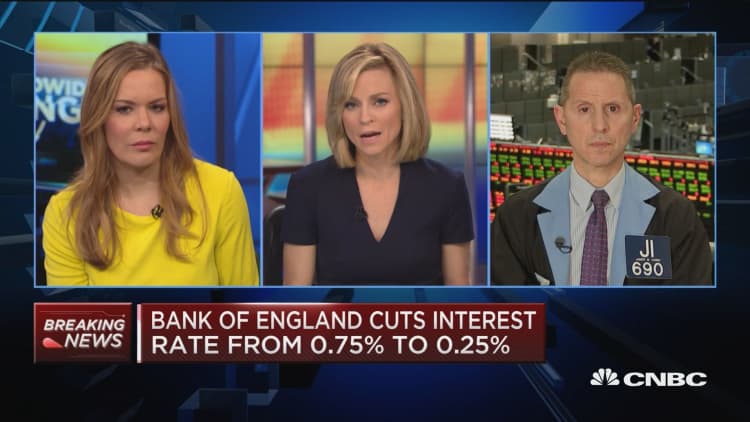The European Central Bank (ECB), contrary to the U.S. Federal Reserve and the Bank of England, has not done anything concrete yet to counter the escalating coronavirus crisis that has hit global equity markets.
That will likely change this week as policymakers convene in Frankfurt for a two-day session starting Wednesday. The meeting comes as the euro zone's third-largest economy Italy is in national lockdown, after extending quarantine measures around the northern region of Lombardy to the rest of the country.
"The economic and financial outlook has deteriorated. First, the Lombardy quarantine is likely to increase the direct and indirect costs of the virus shock," said Mark Wall, chief economist at Deutsche Bank, in a note.
"Second, the tightening of financial conditions is worsening and broadening."
Inflation expectations are at new record lows and the economic costs of the outbreak of the coronavirus will be substantial. As the situation is fast moving, it is unclear how big the economic impact will be in the end, but it will be significant.

On top of this comes the oil crisis triggered by Saudi Arabia and Russia, and the breakdown of communications between the two major oil producers last week. An oil price crash on Monday has added to the gloomy economic outlook.
"Despite this uncertainty, we think that the ECB will feel in the end compelled to respond with yet another package of measures at its policy meeting ... not least to signal its readiness to address any tightening of financial conditions before it becomes 'entrenched'," Dirk Schumacher, an ECB watcher at Natixis, said in a note.
"More specifically, we expect a 10 basis point cut in the deposit rate, an increase of the (asset) purchase program to 40 billion (euros) per month, and a new targeted funding operation for banks," he added.
It will be the first real test for the new ECB President Christine Lagarde and it comes very early on in her new job. She might have to drop her pledge to heal the rift inside the ECB's Governing Council with some hawks such as Bundesbank President Jens Weidmann being skeptical about the usefulness of the asset purchase program. The big question is whether she dares to accept a decision which will not be backed by all or whether she opts for unanimity which then might underwhelm markets.
"Lagarde may have to sacrifice Council unity," said Mark Wall from Deutsche Bank.
"That is possibly a step too far. If the ECB under-delivers, markets will have to wait until the Eurogroup (a meeting of euro zone finance ministers) on 16 March."



